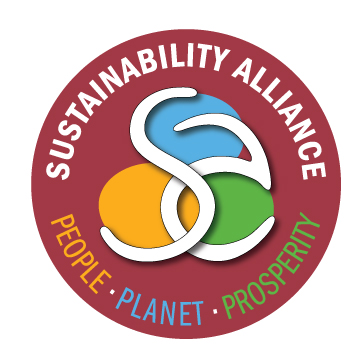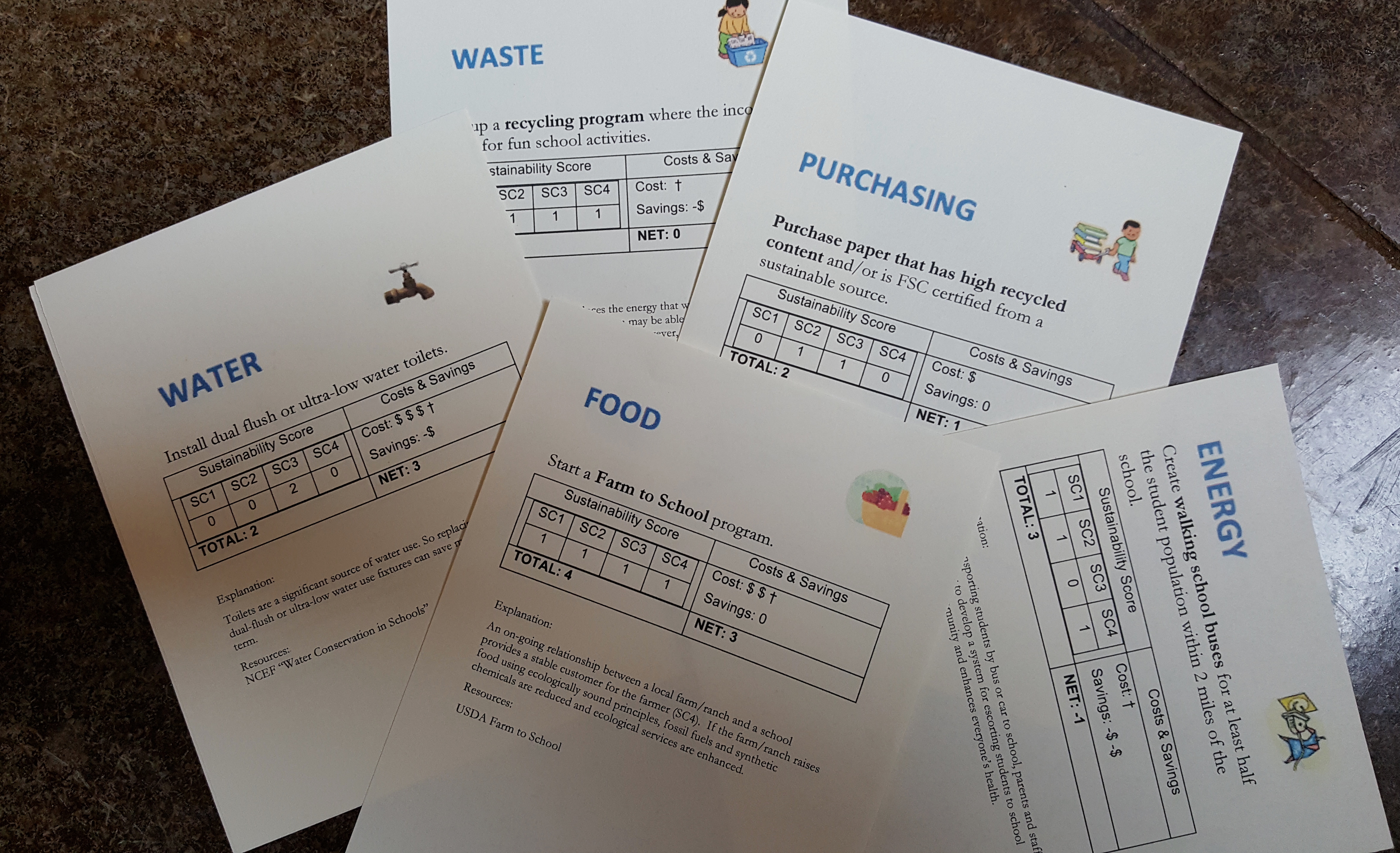Gameplay
Participants are broken into teams and given a stack of cards which have sustainability-related school projects with associated sustainability benefits and costs (time and money, along with projected cost savings). The cards are dealt out and each participant puts down a card they think would be good to do. As a team the group reviews the cards and swaps out projects. Participants have a budget (cost and time) and must choose amongst the project options to build a two-year Sustainability Project Plan. (In game mode, teams can be scored on the Cost-Benefit of their plans.) Participants also examine ways to use their projects as learning opportunities, identifying where they can be inserted into the curriculum. The game can be played at several levels of challenge, including creating a 5-year plan for a fully-sustainable, net-zero-everything school.
Context
As the world turns its attention toward sustainability, we need young people to learn sustainability concepts and practices in school. Most schools aren’t yet integrating sustainability into their operations or they think of expensive actions like buying solar panels. This game/simulation helps educators:
- identify projects that make smart business sense,
- organize them into a logical implementation strategy and then
- integrate them into lesson plans.
Target group
Benefits
- Players learn what can be done in schools to improve their sustainability.
- Players discover which projects have a good return on investment.
- Players understand how to sequence projects for maximum benefit.
- Players learn how to build a 2-year sustainability plan (first generation).
- Players learn how to integrate projects into classroom instruction.
Trivia
This game is built on The Natural Step principles for a sustainable society.
Created by
Type
Genre
Number of players
Number of moderators
Duration
Materials
Lesson plan includes cards ready to print and cut; Powerpoint to guide the game
Languages








